Knowing what can and cannot be included in the new profession is the secret to deciding the relevant transferable skills for the new career. The objective is NOT to mention every single skill you have honed, but rather to include in the overview what is genuinely valuable and relevant in the new profession to the prospective employer.
Here are several suggestions for evaluating suitable transferable skills to be included on the resume while you are changing careers. Seek resume help if you need more insights on the same:
How to include transferable skills on your resume?
- Identify the abilities that the new employer will value
This method is very close to the Go Fish card game. You have a stack of cards (those are your skills) and there is a stack of cards for the employer (skills it seeks from candidates). Both of you are on the task of finding a match on your respective cards. Read the job description and do some homework for the new profession on the key skills to have.
- Checking if the skills you have are transferable
Test to see if you can make a valid case now that you’ve established the skills that matter from the previous stage. The aim is to demonstrate that you have been using key skills on the job, even though it may be in a different kind of setting. If you can fill out the statement below and come off as an even more eligible potential employee, go for it on the resume: I [what did you do] as a [fill in old profession], which taught me [fill in the blank]. In [new career] because [fill in the blank], this is a skill I can use.
- Additional education / training
Not all career paths make an quick transition, and before placing yourself in front of prospective employers, it may be important to complete additional training or education. Be prepared for that, because you may need it for some professions. The transferable skills you have may not be enough in certain cases.
- Other tips for writing the resume of a career-changer
In writing the resume, work with words and language common and familiar to the prospective employer of your new career. Sticking to terminology and using abbreviations from your previous career is simple, but they do not understand what you are conveying to someone who is not in that field or industry. Keep information and words comprehensible to the employer to whom you send the resume. Someone who is not in the same business or field as you does not know, for instance, that CMS means Content Management System or that DNS means Domain Name System. Put them in simplified terms to make it easier for anyone to understand.
It is drastically different to writing the resume for a career change from writing the resume for someone who is dedicated to time and who remains in the same profession. It is important to tweak everything on the resume and place it correctly for the new career. Especially, your Headline and Summary Paragraph need attention. Do not hesitate to seek the assistance of professional resume writers, particularly when you are going to change your career.
Comments are closed.



